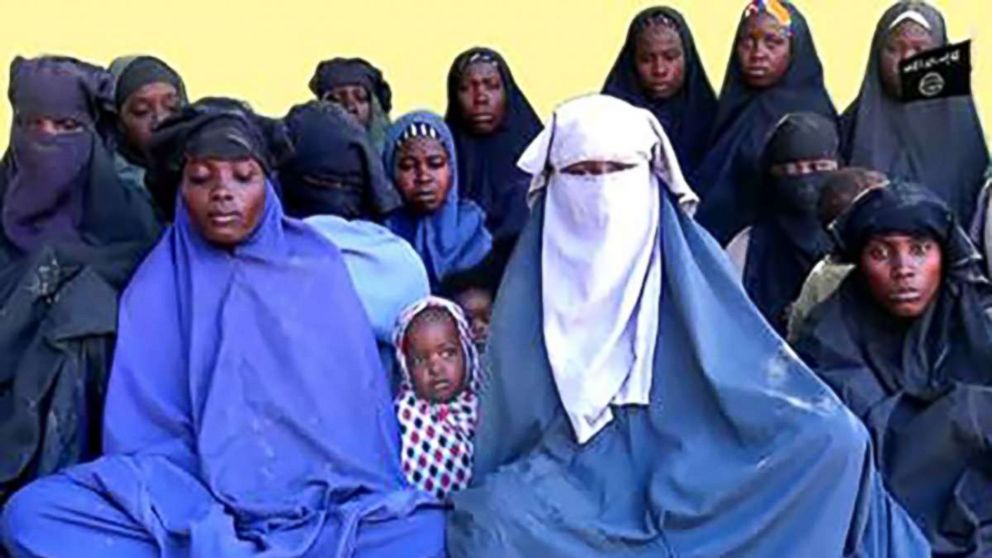Boko Haram releases new video claiming to show Chibok girls: 'We are never coming back'
— -- A video released in Nigeria this week by Boko Haram purportedly shows some of the schoolgirls who were abducted from the town of Chibok nearly four years ago, vowing to stay with the militants and never return home.
About a dozen girls and young women clad in Islamic garb appear in the footage released Sunday by Boko Haram, which has waged a brutal insurgency in northeast Nigeria since 2009. A few of the girls' faces are covered, and some are seen with young children.
"We are the Chibok girls," one of the girls says in Hausa language in the video, according to translations by news agencies. “We are the ones you are crying about for us to come back. By the grace of Allah, we are never coming back.”
The video was published Monday on the news site Sahara Reporters by a journalist who specializes in covering the Boko Haram conflict.
It was unclear whether any of the girls were in fact among the 276 kidnapped by Boko Haram militants from their boarding school in Chibok in northeast Nigeria's Borno State in April 2014. Nigerian government officials did not respond to ABC News’ repeated requests for comment on the video and questions about its authenticity.
Allen Manasseh, a spokesman for the village of Chibok, told ABC News he cannot verify the identities of any of the girls seen in the video.

Boko Haram, which seeks to establish an Islamic state, has spread its terror across Nigeria's mountainous borders over the years into Niger, Chad and Cameroon, all of which surround the Lake Chad Basin. The jihadist group, whose name roughly translates into "Western education is forbidden," has killed more than 20,000 people and displaced some 2.3 million, according to the latest figures from the United Nations.
Boko Haram's uprising was fueled largely through the group's systematic campaign of abducting children and forcing thousands of girls and boys into their ranks, according to a report issued in April 2017 by the United Nations Children's Fund (UNICEF).
Still, the kidnapping of the Chibok schoolgirls shocked the world and led to the launch of a social media campaign in which millions of people around the globe, including high-profile political figures and celebrities, called for the girls' rescue by tweeting the hashtag #BringBackOurGirls.
Some of the girls managed to escape on their own, while others were later rescued or freed following negotiations. But the fate of many remains unknown.
Manasseh, who is a front-line member of the #BringBAckOurGirls movement, said his group didn't release any statement regarding the new footage because it is typical propaganda from Boko Haram, which in the past has released similar videos purporting to show missing Chibok girls.
"What the Chibok girls in the new video released on Sunday are saying is not their own words but what the Boko Haram leadership wants them to say," Manasseh told ABC News. "We know their stories and we cannot be deceived by the new video."



